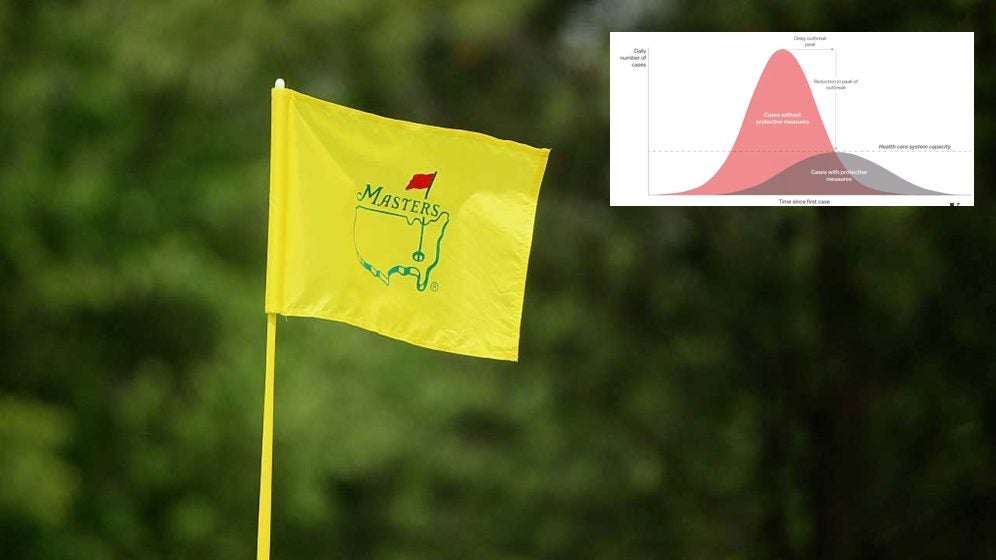 2025 CJ Cup Byron Nelson payout: Purse info, winner’s share
2025 CJ Cup Byron Nelson payout: Purse info, winner’s share
Why the 2020 Masters had to be postponed, explained in one chart

As golf fans continue to grapple with the sad reality that the 2020 Masters is not going to be played this April, it’s important to take a moment to put our emotions aside and consider why that’s the case.
Over the past few days you’ve probably heard the phrase “flatten the curve.” What does that mean? And how does that affect golf?
Flattening the curve is a strategy used by public health 0fficials during crises like the current coronavirus pandemic. It’s a way of delaying the peak of the outbreak, which in turn protects the healthcare system from being overwhelmed.
Vox.com has a really helpful explainer on exactly this, which even former President Obama advised reading. Explained in its simplest terms: If a bunch of people get affected with the disease all at once, they all become in sudden need of urgent treatment.
The hospitals charged with treating them may not have enough equipment, hospital beds, doctors or nurses to treat all these patients, which increases the fatality rate. It’s the healthcare equivalent of a run on the bank, and it’s what turns situations like these into a full-blown crisis,
Our #FlattenTheCurve graphic is now up on @Wikipedia with proper attribution & a CC-BY-SA licence. Please share far & wide and translate it into any language you can! Details in the thread below. #Covid_19 #COVID2019 #COVID19 #coronavirus Thanks to @XTOTL & @TheSpinoffTV pic.twitter.com/BQop7yWu1Q
— Dr Siouxsie Wiles (@SiouxsieW) March 10, 2020
ADVERTISEMENT
Which brings us to the 2020 Masters postponement.
When it comes to large sporting events where lots of fans are standing in close proximity to each other, shaking hands, bumping into each other and touching communal items, it drastically increases the chances of one infected person passing on the illness to many others in a short period of time.
Postponing events like the Masters is a form of social distancing — another term you may have heard thrown around. It disperses fans and prevents large groups of people from congregating in the same area at the same time. Many of these fans may still become infected at one point in time, but they’re a lot less likely to all be infected at the same time.
It flattens the curve, and while it’s a sad situation all around to postpone an event like the Masters, which means so much to so many, rest assured it’s done for the public good.
To receive GOLF’s all-new newsletters, subscribe for free here.
ADVERTISEMENT





